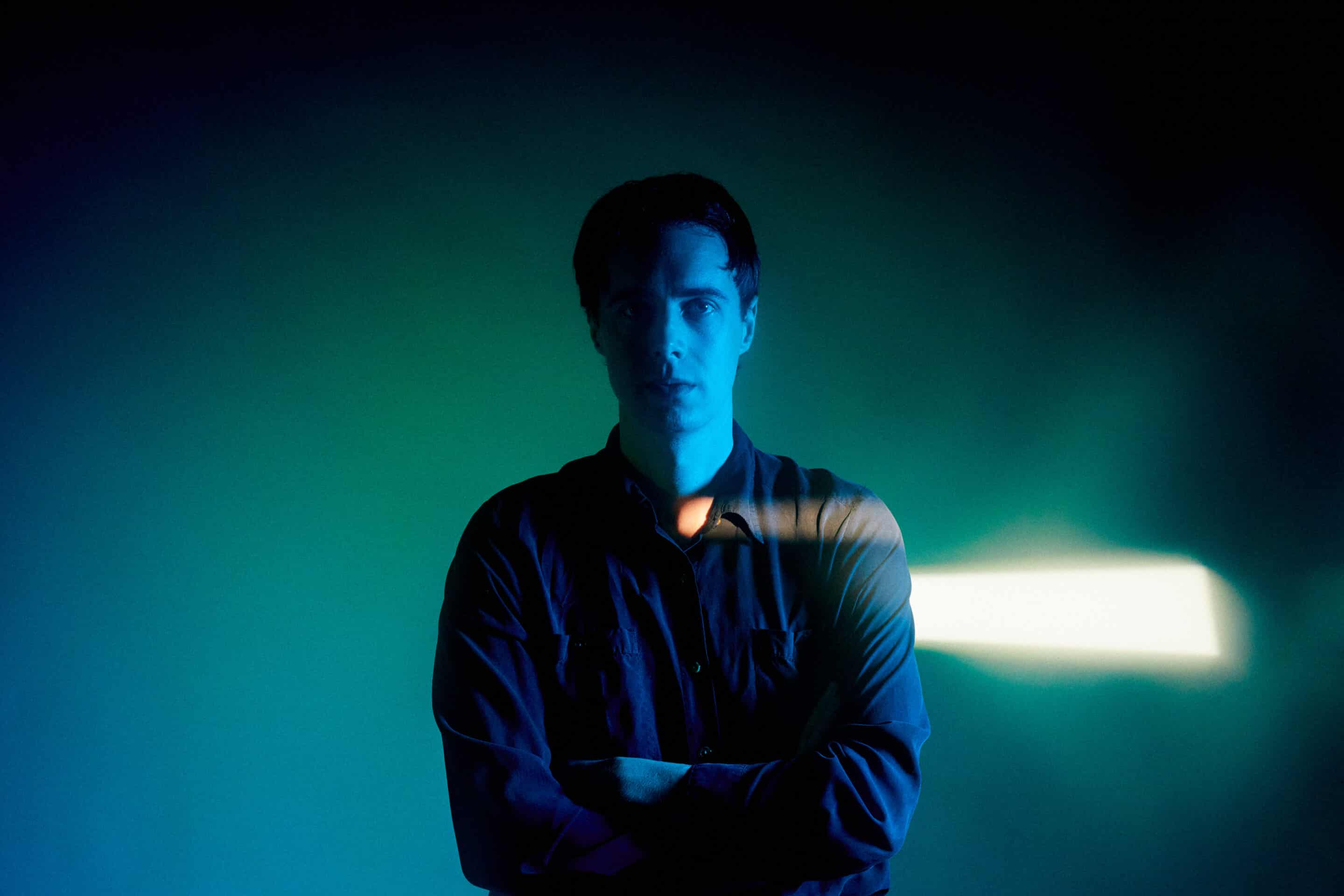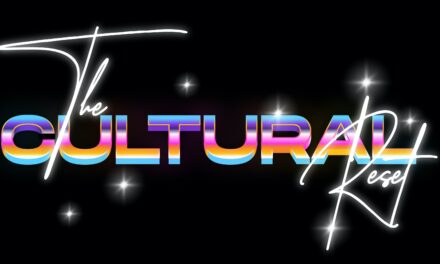Photo credot to Jimmy Fontaine
For the better part of the last decade, Augustus Muller has been operating as the austere, beating pulse behind the Massachusetts-based dark-wave duo Boy Harsher. Crafting records from inside the minimalistic underbelly of club music gone astray alongside the band’s vocalist Jae Matthews.
Since meeting at the Savannah College of Art and Design in 2013, the two have been redefining their vision of modern techno music, honing a new sound that is more hypnotic, more euphoric, and more corrupted with every record.
The band’s 2022 release, The Runner, was a return to their background in film, with a soundtrack released alongside a short film of the same name. The Runner wasn’t Muller’s first time working on a visual project. In 2020 he released his first original score, Machine Learning Experiments. An album of compositions for a series of adult short films released by Four Chambers, director Vex Ashley’s experimental, avant-garde porn project.
In 2023, Muller has released two projects, one being Cellulosed Bodies, a mechanical, glacial, composition for the Four Chamber’s films Automaton and Crash. And additionally, his score for the 2023 film My Animal, a neon-lit coming-of-age horror film directed by Jacqueline Castel and written by Matthews, is available now.
Mundane: You went to film school in Savannah, and then you did the band; what made you want to return to working on films?
Muller: It’s something that I’ve always wanted to do. Doing scores was always the dream, directing films was always the dream. Music with the band has been taking up my time recently, but because of the quarantine during Covid, I had a bunch of free time, and we had to find a new way to promote a record, so The Runner was a great opportunity to try something new, or I guess to get back into film.
Mundane: How do you go about deciding what projects to work on now? Or what makes you excited about a project?
Muller: That’s the big question right now. My philosophy has always been to follow what motivates me. I just want to be making things at all times, so sometimes just sitting down and writing a record…I’m just not in the right headspace for that, I don’t have the motivation to do that. So doing the scores, it’s like an assignment almost. You get a very specific set of rules and some visuals to write off of, and that gave me some new motivation. Having some limitations and something very specific to do takes a lot of the stress out of it
Mundane: How did your collaboration with Vex Ashley come around? How did you two meet?
Muller: Vex licensed a Boy Harsher song years ago, four or five years ago? I’m not sure. But that’s how I got introduced to Four Chambers, and then after that, I think we met up in Manchester; we were playing a show there, and she lives not far away. So I was just riffing with her and said, “Hey, if you ever want some original stuff, I could write something bespoke for a film you’re working on,” and she liked that idea, so I think it was just a few months later I did the first score for Hydra.
Mundane: For My Animal, Jae was writing the film, and you were composing the score. How does your process change when you’re working with a team on a movie rather than with just each other on a record?
Muller: Working on a feature film is a huge team, and with a film, music is definitely not a priority. It’s sort of the last thing that happens. So that was a learning experience, figuring out how to use a very limited amount of time to make something that made the director happy.
Mundane: With Machine Learning and Cellulosed Bodies, there are these recurring themes of isolation and the human relationship with automation and machinery. What continues to attract you to those themes?
Muller: It’s funny how it worked out that way. I think that it was sort of Vex’s idea. The techno-futurist world was something that I could work well with because I have the electronic background. But yeah, for me to write music for sci-fi? Sci-fi porn? That seems like a pretty good fit for me.
Mundane: What’s the most notable new challenge between composing a film and writing a record?
Muller: Writing a record for Boy Harsher is a little difficult right now, just because we’ve been a band for so long, a decade at this point, so I feel like this next record has to be really precious and substantial to reflect that history, so just trying to find the right voice for that has been hard.

Mundane: One of the short films you scored for, Automaton, was inspired by the J.G Ballard book Crash. If you could adapt and score another novel for film, what would it be?
Muller: Well, they’re probably not gonna do it again, but The Stand by Stephen King. It’s an apocalypse movie. I really like that story, and all the film representations have been kind of soft, but if they made a super dark new version I’d love to do the music for that.
Mundane: When you’re composing, what space do you need to be in? What do you surround yourself with?
Muller: So for composing for film, you’re on such a rigid schedule, you’ve gotta be in the studio, you’ve gotta be in the most time-efficient space. You need all of your gear and tools around you to get that done. Writing a record is a little bit different because you’re looking for creativity in different places. In September, I went down to New York, I got a sublet in the city for a month just to try something new and brought a really minimal setup down there, and that was actually really inspiring. I wrote a lot of new music down there. With electronic music, it’s like the analogy of the indie rock band going to a cabin in the woods; for electronic music, the equivalent is getting a sublet in Chinatown. It was the right move for me.
Mundane: It makes sense to need to be surrounded by noise, movement. Because you guys have usually written records kind of out of the way, right?
Muller: Not in a city, yeah, but not totally secluded. For me it was more about being able to go to a lot of shows, go to a lot of clubs, sort of just absorbing a lot more art than I would in a small town.
Mundane: When you’re writing film scores, you lose the vocal and lyrical element. Does that change things for you?
Muller: I feel like I really need some sort of collaboration when I’m making music. Whether it be vocals, or in terms of composing for film, the visual element. I need something to react off of. It gives you a total blueprint of what works and what doesn’t. When I’m just making a beat with nothing in mind, you don’t really know if it’s working or not. I need that other element to lock into and validate it.

Mundane: When you’re talking about going to New York and exploring the scene there, what’s renewing your excitement about music? Or what feels fresh to you in the scene right now?
Muller: I mean, I was just having fun going to clubs and listening to DJs. Sort of getting back into techno a little bit. Club music has always interested me and has always been part of our sound. I’ve had a lot of time recently to just sit back and enjoy it, go to the club and dance and have it wash over me.
Mundane: And what’s your go-to dance song?
Muller: It depends on the vibe but my go-to when I DJ, my touchstone, would be Bizarre Love Triangle. I feel like that one always slams.
Mundane: What makes a score noticeable to you when you’re watching films? Or was there one that stuck out to you recently?
Muller: That’s a good question. I mean, there are scores that are great on their own that I love. Like Jóhann Jóhannsson’s Mandy score, that’s a record that I listen to over and over again, but then once you start listening to it like that, you sort of forget its connections with the visuals and the story. I really like Jonathan Glazer films, the music he uses is always doing something unexpected. The visuals are giving a vibe, the movie is giving a vibe, and then he uses the music to make it kind of perverted a little bit. So like, Under The Skin, is a great example. Another one that’s more traditional is this score for Birth, Alexandre Desplat. It’s pretty simple, classical piano-driven music, but it just has such a bizarre vibe to it that, I don’t know…it makes me feel a really weird way when I’m watching the movie. Which I think adds a lot to it
Mundane: What’s the film that’s impacted your life the most?
Muller: Good question…It depends on what part of my life you’re talking about. Something that comes to mind right now is Funny Games by Micheal Haneke. I remember just seeing the trailer, which kind of blew me away, I was maybe nineteen when that came to theaters, and I was living in Austin at the time, just really getting into film and watching movies. Something about that was just something totally new, a new genre that I knew nothing about and that sort of opened me up to a totally new aesthetic. I watched it a bunch of times when it came out in theaters, I actually took my mom to see it, which looking back, was maybe the wrong decision….
Mundane: Has your recent work in film changed your approach to the visuals in Boy Harsher?
Muller: Definitely. I feel like with The Runner, we sort of took a step up in just production value alone. We had been shooting a lot of our videos on DV cams, and HI8 cams, it was pretty low-fi. Then in the last few years and with The Runner, we’ve really fallen in love with 16 mm. So I feel like that’s the new aesthetic that we’re moving towards.





